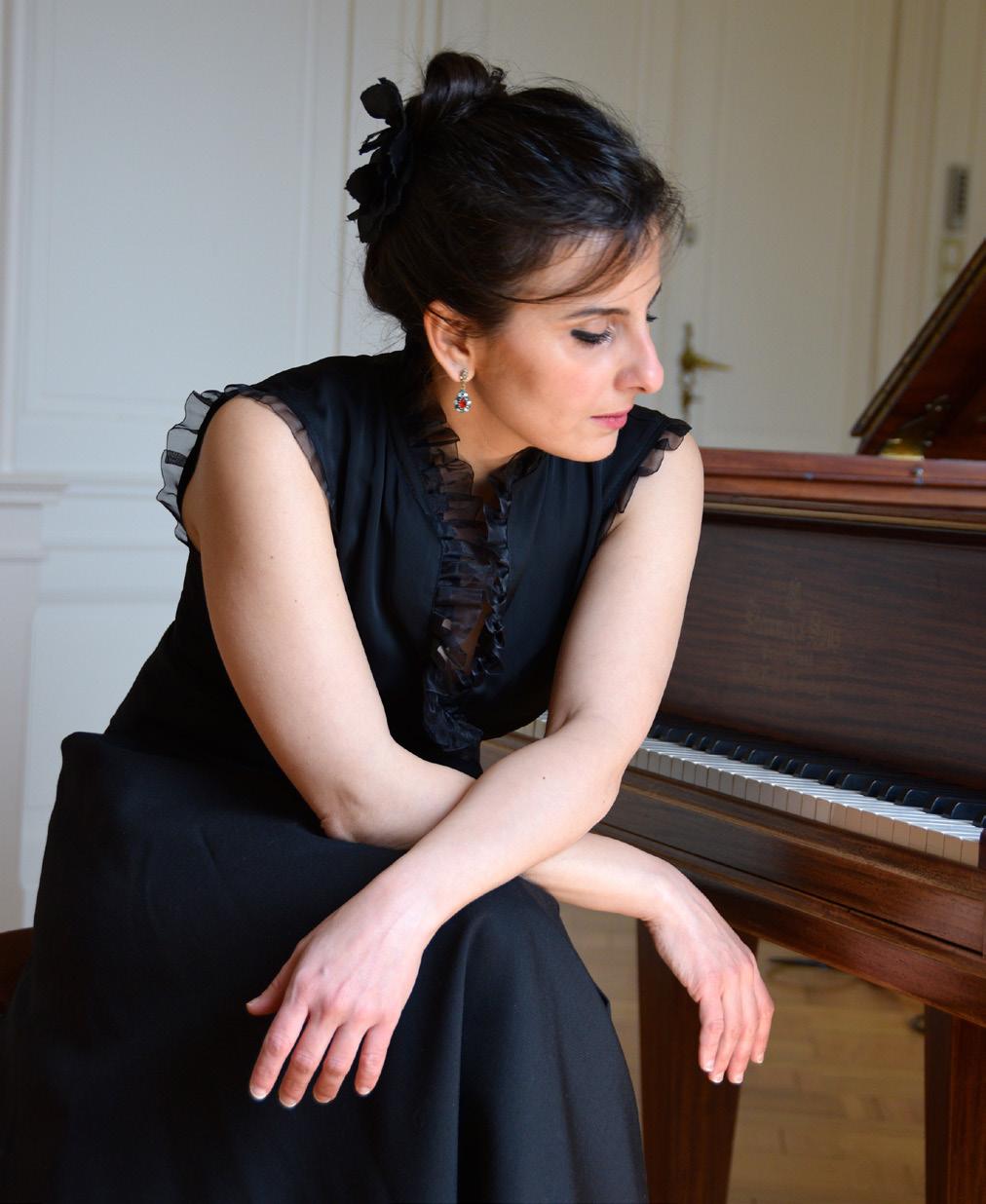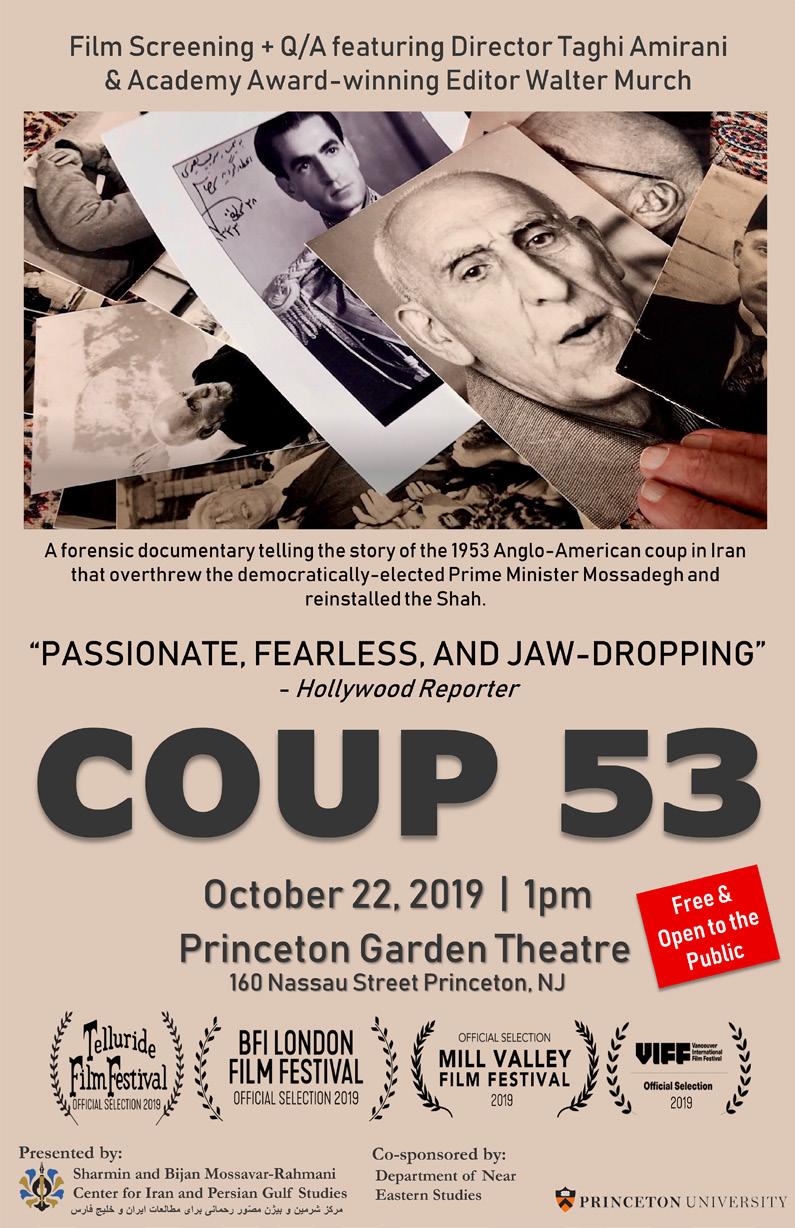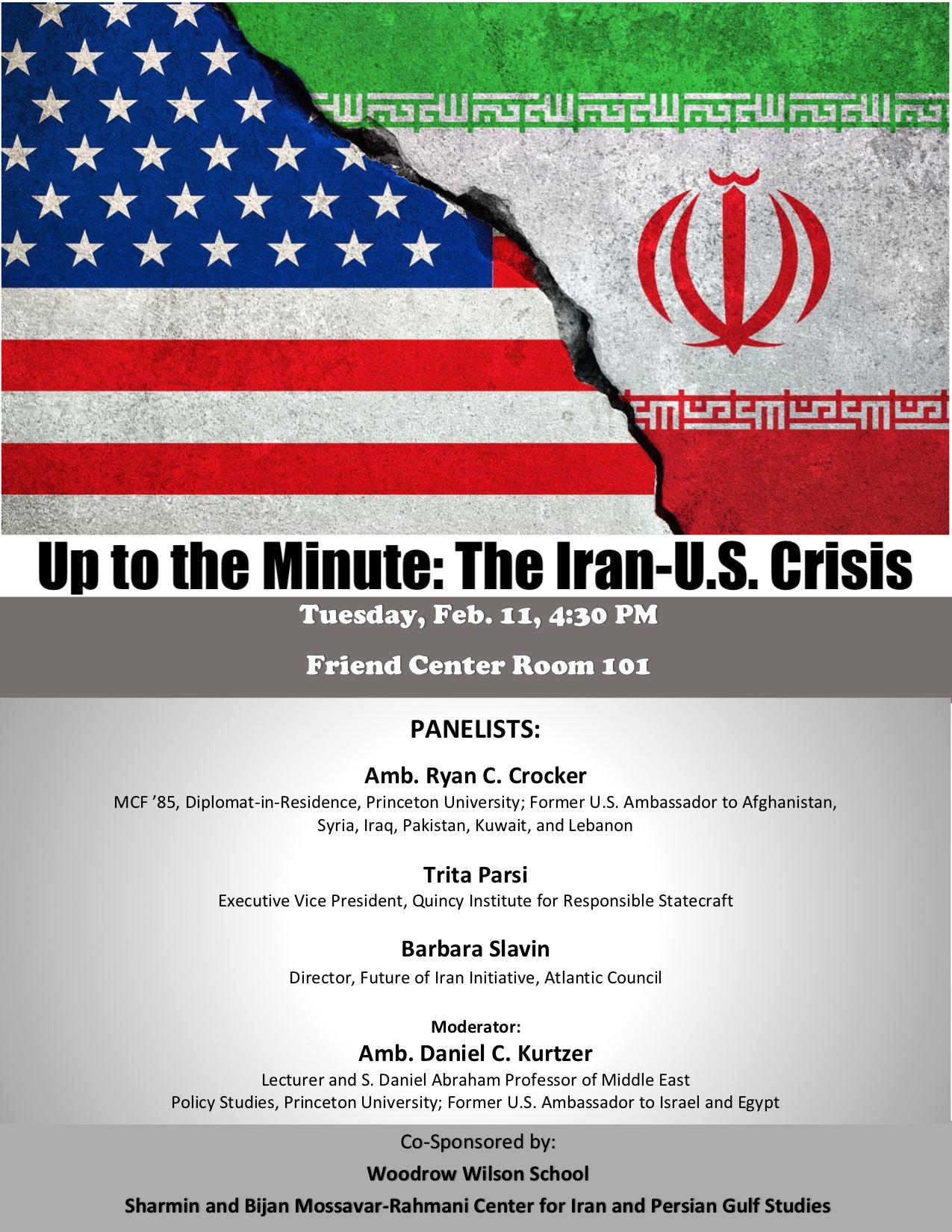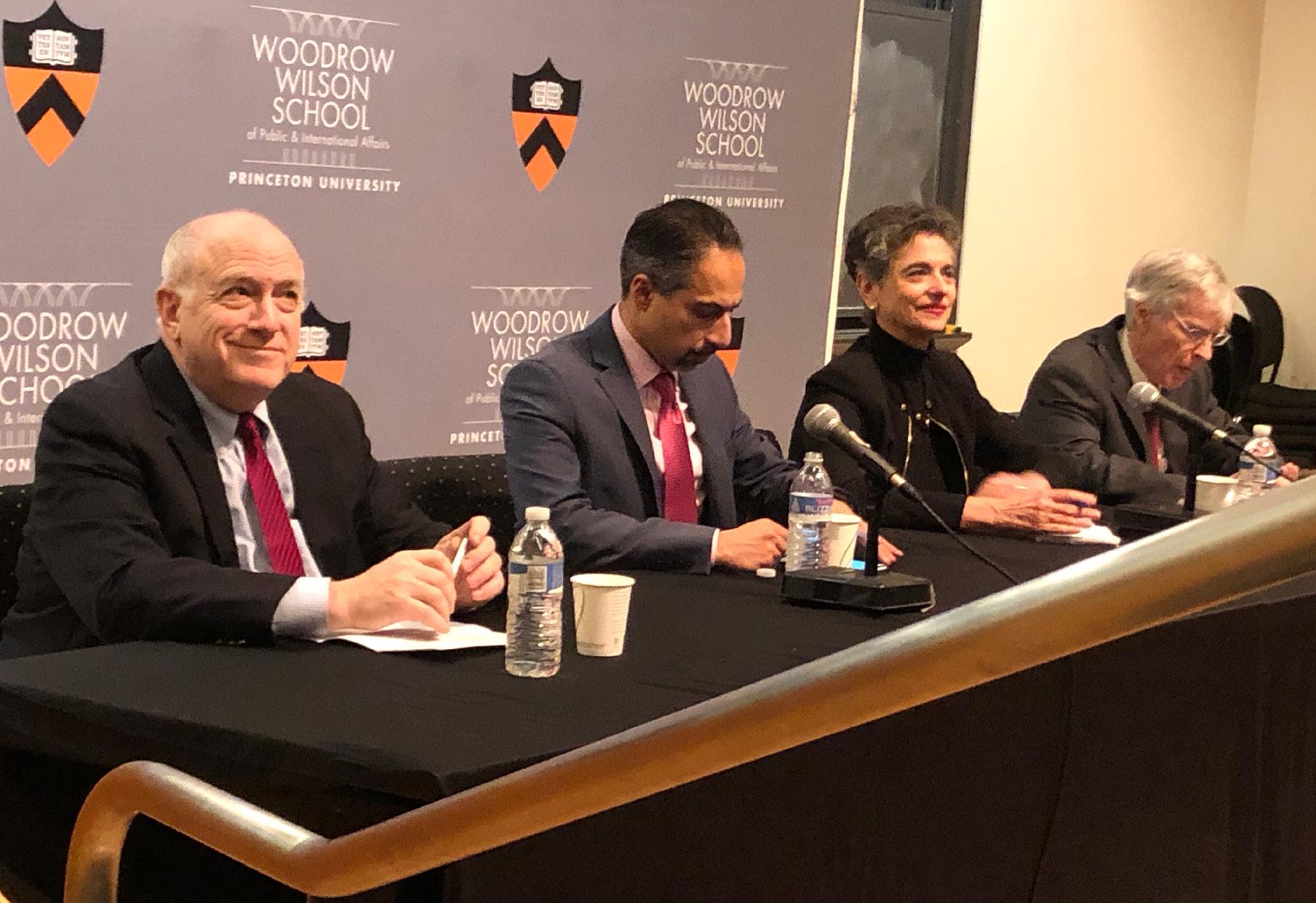
7 minute read
Center Events
from Sharmin and Bijan Mossavar-Rahmani Center for Iran and Persian Gulf Studies: Annual Review 2019-20
The Mossavar-Rahmani Lecture Series is a robust interdisciplinary seminar series addressing issues related to Iran and the Persian Gulf in the 19th–21st centuries, with a focus on the region’s role and significance in the contemporary world.
Advertisement
September 24
Lior Sternfeld, Assistant Professor of History and Jewish Studies, Penn State University “Iranian Jews in the Twentieth-Century: Between Iranian Nationalism, Communism and Zionism”

October 9
Golbarg Rekabtalaei, Assistant Professor of Middle Eastern History, Seton Hall University “Iranian Cosmopolitanism: A Cinematic History of Nationalism in the Early Twentieth Century”
November 6
Alice Wilson, Senior Lecturer in Anthropology, University of Sussex “Defeated Revolutions, Lasting Legacies: The Afterlife of Revolution in Dhufar, Oman”
February 5
Peyman Jafari, Postdoctoral Research Associate, Sharmin and Bijan Mossavar-Rahmani Center for Iran and Persian Gulf Studies “Oil, Labor and the Making of the Iranian Revolution”
February 12
Elaine Sciolino, Writer for The New York Times and former Paris bureau chief; David Burnett, Photojournalist “Anniversary of Iranian Revolution Event: The Iranian Unfinished Revolution”
February 26
Adam Hanieh, Associate Professor in Development Studies at SOAS, University of London “Money, Markets and Monarchies: The Gulf Cooperation Council and the Political Economy of the Contemporary Middle East”
March 4
Arash Davari, Visiting Academic Professional at the Sharmin and Bijan Mossavar-Rahmani Center for Iran and Persian Gulf Studies “Human Rights Guerrillas: Iran in the Long 1970s”
May 4 (virtual) Djavad Salehi-Isfahani, Professor of Economics, Virginia Tech “Covid-19 Management and the Economic Crisis in Iran”

May 5 (virtual) Amy Malek, Associate Research Scholar, Sharmin and Bijan Mossavar-Rahmani Center for Iran and Persian Gulf Studies “Paradoxes of Dual Nationality: Constraints on Multiple Citizenship in the Iranian Diaspora”
May 7 (virtual) Seema Golestaneh, Assistant Professor in Near Eastern Studies, Cornell University “Unknowing & the Everyday: Mystical Thought in Contemporary Iran”
May 8 (virtual) Luciano Zaccara, Research Assistant Professor in Gulf Politics, Gulf Studies Center, Qatar University “Covid-19 Public Health & the Economy in the Gulf States”
Cultural Events: Film, Literature & the Arts
In addition to its primary academic series, the center offers cultural events to help promote understanding of Iranian society and to further engage with the broader Princeton community.
September 12
Student Welcome Luncheon
October 18
Layla Ramezan, Pianist, Ensemble Matka in Geneva “100 years of Iranian Piano Music”
October 22
Taghi Amirani, Physicist and Documentary Filmmaker; Walter Murch, Film Editor, Director, Writer and Sound Designer “Coup 53”
100 Years of Iranian Piano Music
Layla Ramezan is an Iranian concert pianist who intertwines her Persian heritage with the contemporary music that comprises parts of her daily life. She performs regularly in France and Switzerland, as well as other well-known venues
Photograph by Estelle Vidon

in Europe and abroad. Ramezan has also worked with prominent musicians and composers and she is the driving force behind several intercultural musical projects that bring together Iranian, French, Swiss and American composers for global conferences, residencies and concerts.
The concert, “100 Years of Iranian Piano Music,” is based on one of Ramezan’s projects, for which she will produce a total of four CDs: the first CD of the quartet, “Iranian Composers from 1950,” was released in January 2017 and the second, “Sheherazade,” was released in May 2019. Approximately 200 guests attended the event held in Princeton University’s Taplin Auditorium in Fine Hall. The unique characteristics of Ramezan’s music are influenced by the intersection of her two defining cultures, by allowing the oriental and occidental influences to inspire and complement each other. Sound, phrasing, sensitivity to rhythm and a refined interpretation are feature qualities of her piano playing.
Above
Layla Ramezan

With the help of Associate Research Scholar Amy Malek, the Sharmin and Bijan MossavarRahmani Center hosted a film screening of “Coup 53” at the Princeton Garden Theatre in October. “Coup 53” made its debut at film festivals across Europe. The screening in Princeton was one of the early ones for its American debut and features extraordinary, never seen before archival material unavailable for decades. In addition to telling the story of the 1953 CIA coup in Iran, the 16mm footage revealed dark secrets buried for 66 years. What begins as a historical documentary about four days in August 1953 turns into a live investigation, taking the filmmakers into uncharted cinematic waters. The roots of Iran’s volatile relationship with Britain and America have never been so forensically and dramatically exposed. Following the screening, Iranian director Taghi Amirani and film editor Walter Murch joined the audience and participated in a Q&A.

Book Launch Series
October 16
Narges Bajoghli, Assistant Professor of Middle East Studies, Johns Hopkins University “Iran Reframed: Anxieties of Power in the Islamic Republic”
November 20
Yann Richard, Professor Emeritus, Sorbonne Nouvelle, Paris “Plots, Secrets, Truths and Lies in Modern Iranian Historiography”
May 20 (virtual) Farzaneh Hemmasi, Associate Professor of Ethnomusicology, University of Toronto “Tehrangeles Dreaming”
June 5 (virtual) On Barak, Senior Lecturer in Middle Eastern History, Tel Aviv University “How Coal Made the Middle East and Spread Global Carbonization”
Co-sponsored Events
September 30
Wheeler McIntosh Thackston, Professor in the Department of Near Eastern Languages and Civilizations, Harvard University “Translating Persian”
October 14
Ayça Çubukçu, Associate Professor in Human Rights and co-director of LSE Human Rights, London School of Economics and Political Science “For the Love of Humanity: The World Tribunal on Iraq”
November 12
Scott McDonough, Associate Professor of History, William Paterson University of New Jersey “‘We Shall Come to You in a Manner More Befitting a King’: The Royal Succession in Sasanian Iran”

December 2
Thomas Benfey, Graduate Student, Department of Near Eastern Studies, Princeton University “How to Say ‘Religion’ in Late Antique Iran”
February 11
Ambassador Ryan Crocker MCF ’85, Diplomatin-Residence, Princeton School of Public and International Affairs Trita Parsi, Executive Vice President, Quincy Institute Barbara Slavin, Director, Future of Iran Initiative, Atlantic Council Ambassador Daniel Kurtzer, S. Daniel Abraham Professor of Middle East Policy Studies, Princeton School of Public and International Affairs “Up to the Minute: The Iran-U.S. Crisis”
February 24
Neda Bolourchi, Postdoctoral Assistant Professor of Middle Eastern Studies, Rutgers University “Iranian Minority Communities during the IranIraq War and After”


Above
From left to right: Ambassador Daniel Kurtzer, Trita Parsi, Barbara Slavin and Ambassador Ryan Crocker
In February, the Mossavar-Rahmani Center hosted a special event marking the 40th anniversary of the Iranian Revolution: “The Iranian Revolution: The Unfinished Iranian Revolution,” co-sponsored by Princeton’s Program in Journalism. In the packed Friend Center, Director Behrooz Ghamari-Tabrizi moderated a conversation between contributing writer and former Paris bureau chief for The New York Times, Elaine Sciolino, and renowned photojournalist and co-founder of Contact Press Images, David Burnett.
The Iranian Revolution of 1979 remains one of the most important world events of the second half of the twentieth century. There are numerous studies of the causes and consequences of the revolution, but how the revolution was lived and how those who experienced and were transformed by that revolutionary moment continue to raise questions about our understanding of this historic event. Through their words and images, Elaine Sciolino and David Burnett captured the spirit of this revolution as it was unfolding. At the special anniversary event, Sciolino and Burnett shared stories of their arrival in Iran at the onset of the revolution, which were accompanied by a slide show of Mr. Burnett’s remarkable photographs compiled in his book “44 Days: Iran and the Remaking of the World.” In fact, the caption of one of his first photographs in the “44 Days” collection reads: “I arrived in Tehran the day after Christmas, 1978 unaware of the degree of political unrest. I was to figure it out shortly.” Moreover, Sciolino was on the plane from Paris to Iran with Supreme Leader Khomeini, following the overthrow of the Shah. In her book, “Persian Mirrors: The Elusive Face of Iran,” she writes: “What really mattered is that in the end the Iranian air force did not shoot us down, and we rode the Ayatollah’s plane into history,” speaking about being one of three female journalists aboard the plane among more than 100 reporters, including Peter Jennings.

In addition to receiving many accolades for her work, Sciolino was honored by Columbia University’s Encyclopedia Iranica project in 2001 for “presenting the best of Iran to the world” and elected to the Executive Council of the Society for Iranian Studies that year. David Burnett was named one of the 100 Most Important People in Photography by “American Photo” magazine. Center members were fortunate to continue the conversation with Sciolino and Burnett over dinner following the event.

©2020 David Burnett/Contact Press Images




